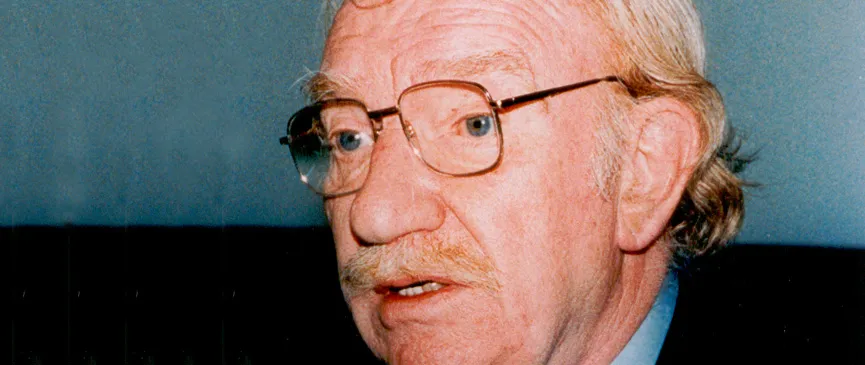Main content
Fernando Fernán-Gómez Prince of Asturias Award for the Arts 1995

Actor, director and writer, Fernando Fernán Gómez (Lima, Perú, 1921 – Madrid, Spain, 2007) was born in Perú while his mother was on a theatre tour of Latin America. His birth was registered a few days later in Buenos Aires and he was to keep his Argentinean nationality until he was granted Spanish citizenship in 1984. His desire to study Philosophy and Arts was thwarted by the outbreak of the Spanish civil war and, when it ended, he began to work in small theatrical roles, on radio and in dubbing films.
In 1943, he signed a contract with the production company CIFESA, making various films and thus covering the first stage in his intense cinema career. With Carlos Saura’s Ana y los lobos (1972), he began a new stage in his acting career, characterised by higher quality films, outstanding among which are: El espíritu de la colmena (1973), Mamá cumple cien años (1979) and Epílogo (1984). His long and fruitful work has covered theatre, cinema, television and literature. He has received many important awards. In 1961 and 1962, he received the National Award for Dramatic Interpretation for Mi querido embustero. In 1976, he won the Silver Bear for Best Actor in Berlin for El anacoreta. With Las bicicletas son para el verano, he won the Lope de Vega prize in 1978 and in 1982 the public’s and critics’ awards. In 1985, he received the National Theatre Award and another Silver Bear for Best Actor in Stico. He also won the Goya prize on two occasions and the National Film Award in 1989. Under the direction of Fernando Trueba, in “Belle Époque” he played a liberal painter in the Spain of 1931, a role in which he obtained unanimous critical acclaim. This role also earned him the Goya Award for best male actor and the film won the 1994 Hollywood Oscar for Best Foreign Language Film. Noteworthy among his last films are El abuelo (1998), Todo sobre mi madre (1999), Plenilunio (1999), La lengua de las mariposas (1999), Visionarios (2001) and El embrujo de Shangai (2002).
Throughout his life he received numerous distinctions, such as the Gold Medal of Fine Arts (1981), the National Theatre Award (1985) and the National Film Award (1989). In 2000, he became a member of the Royal Academy of the Spanish Language (RAE) and received the Honorary Golden Bear at the Berlin International Film Festival. The following year he received the Gold Medal of the Spanish Academy of Cinematographic Arts and Sciences.
End of main content
